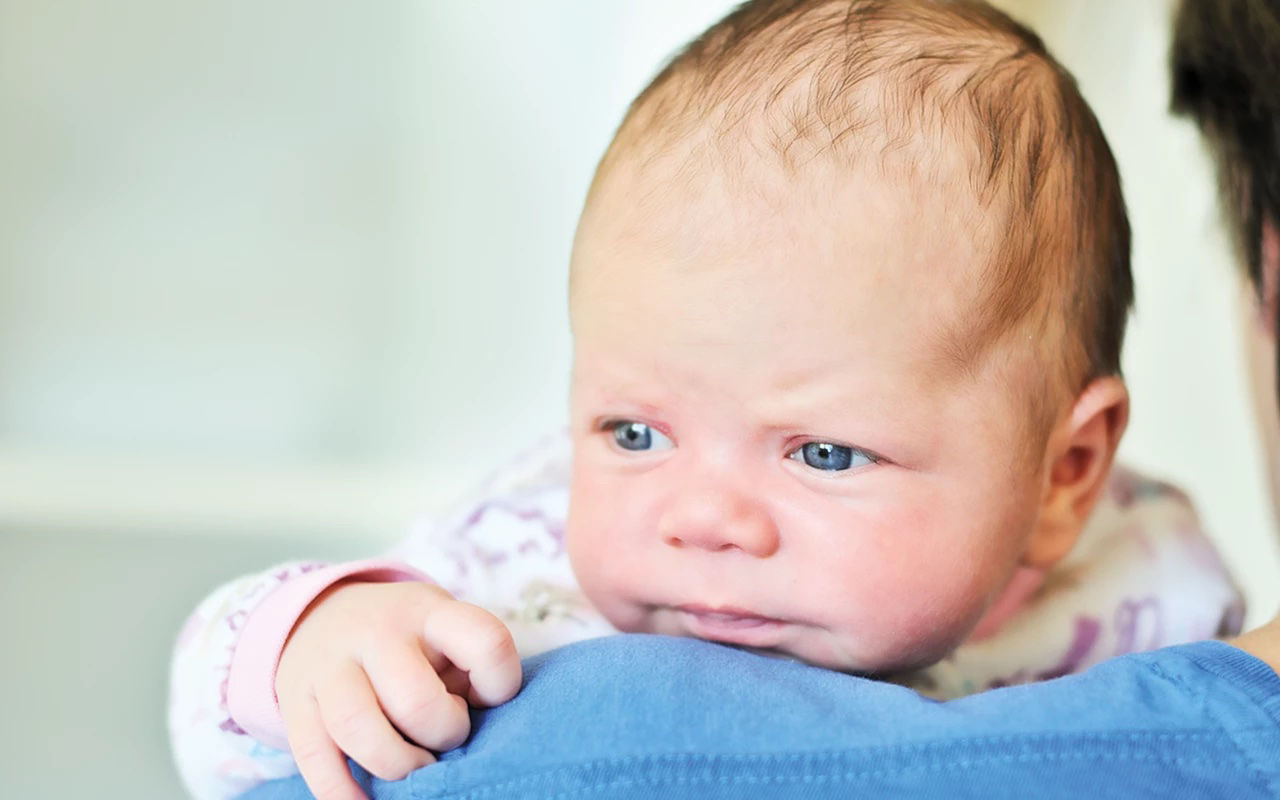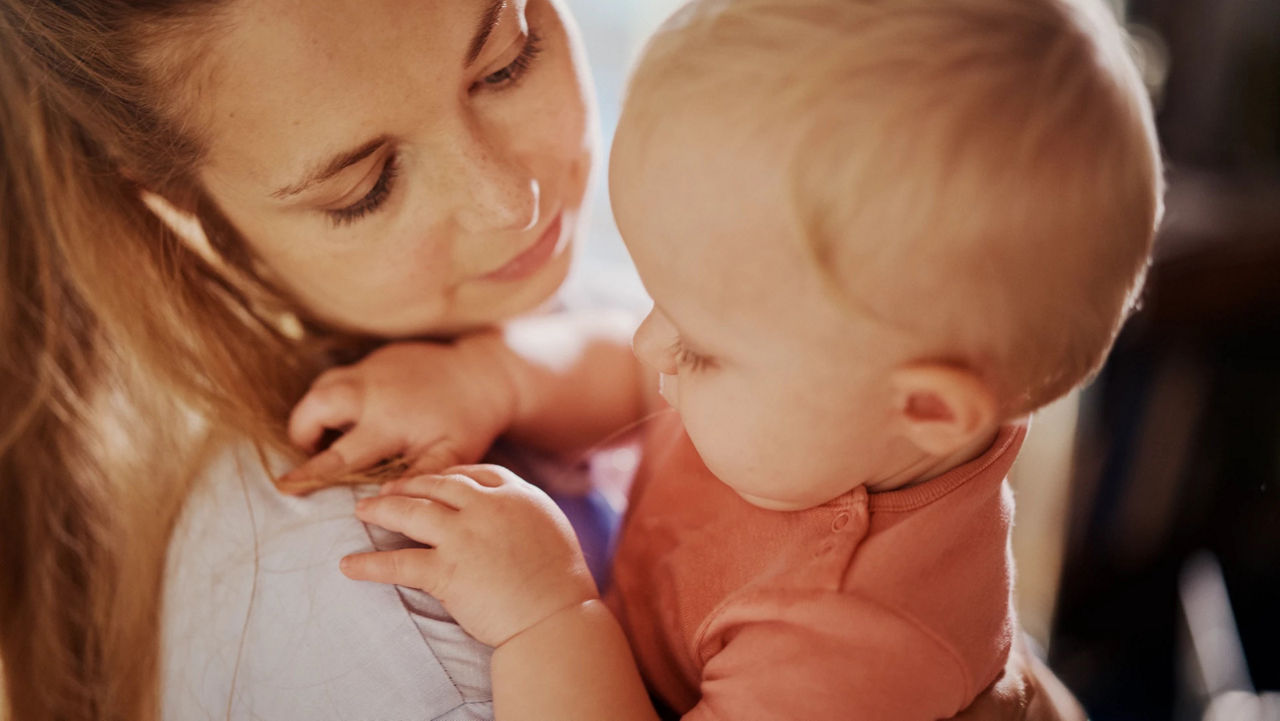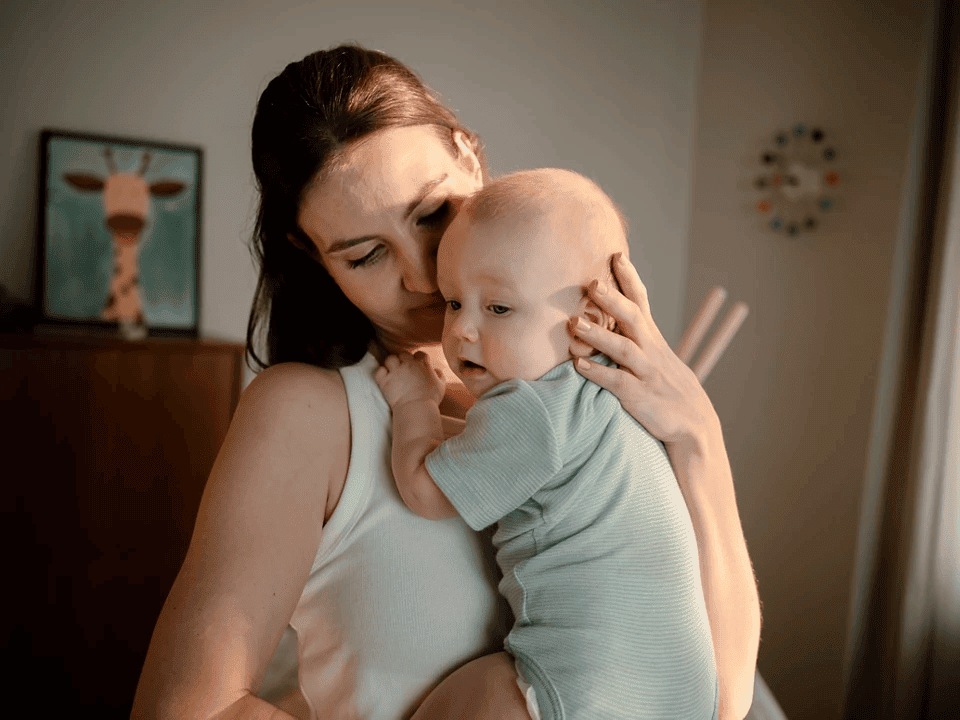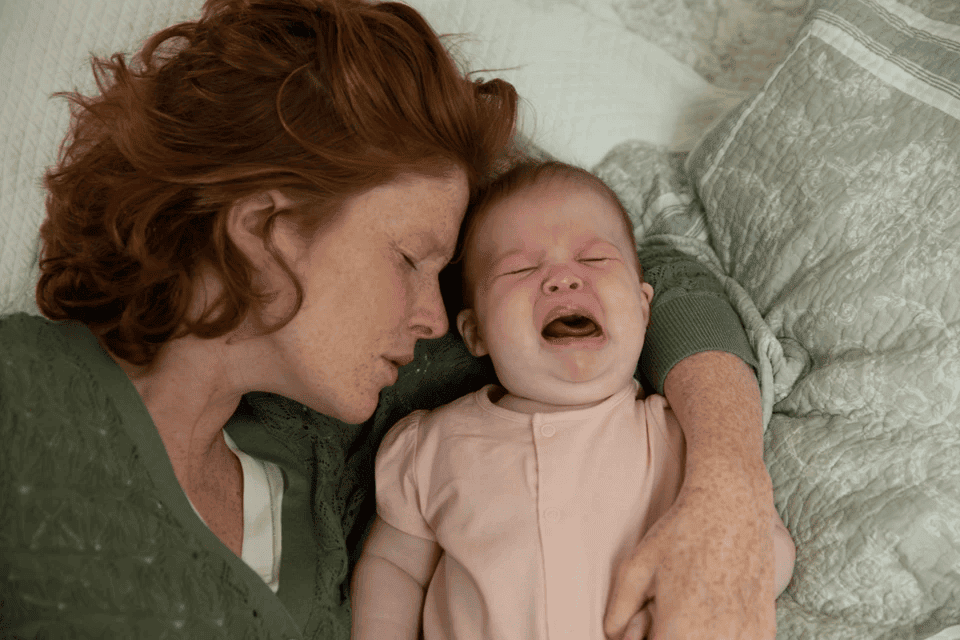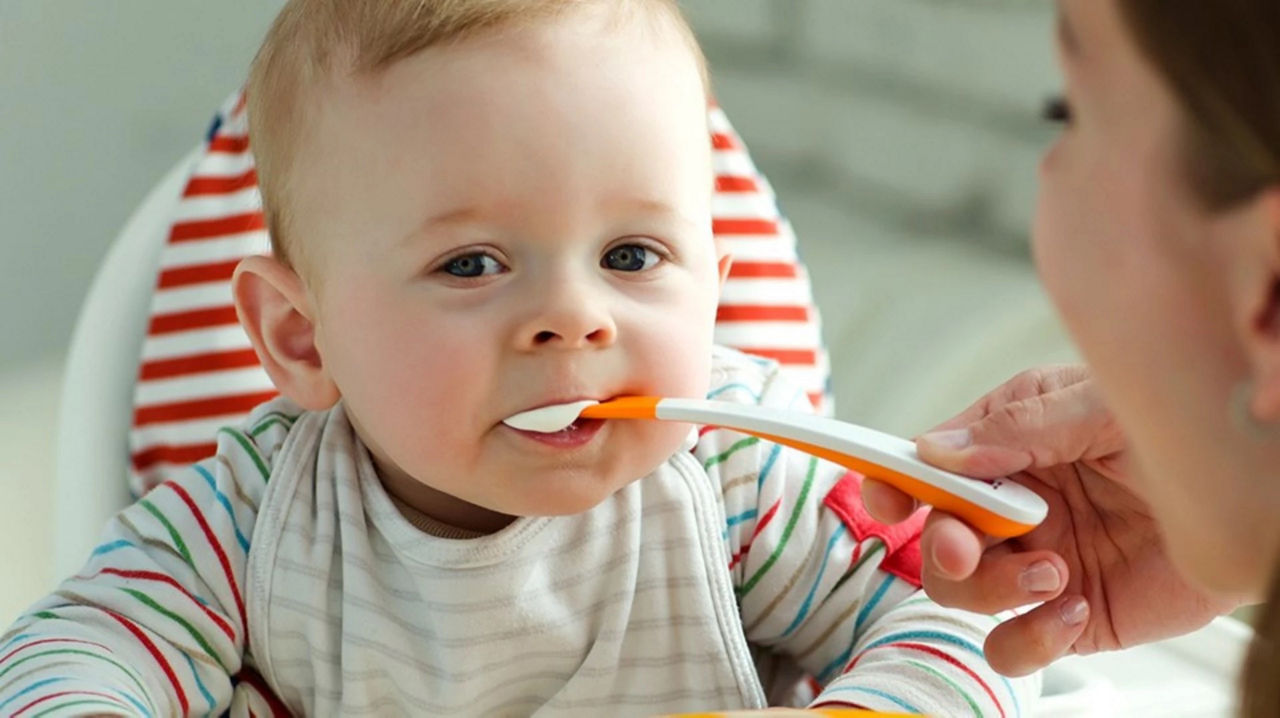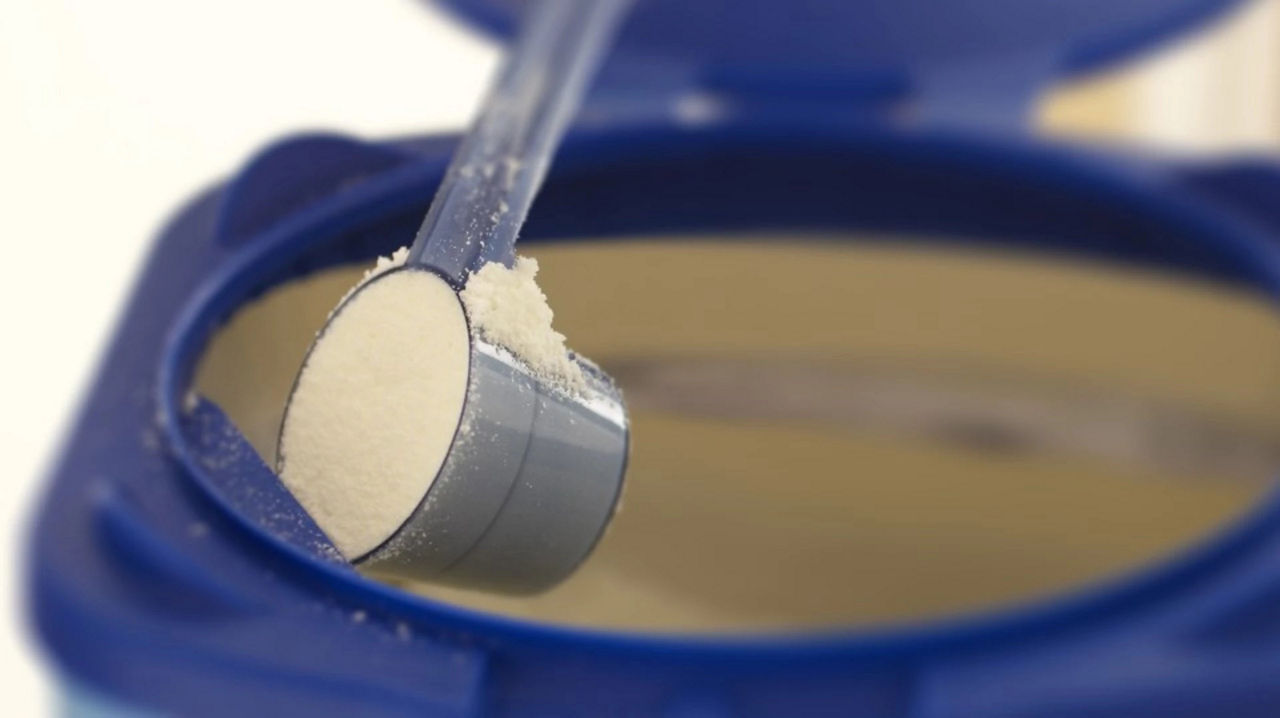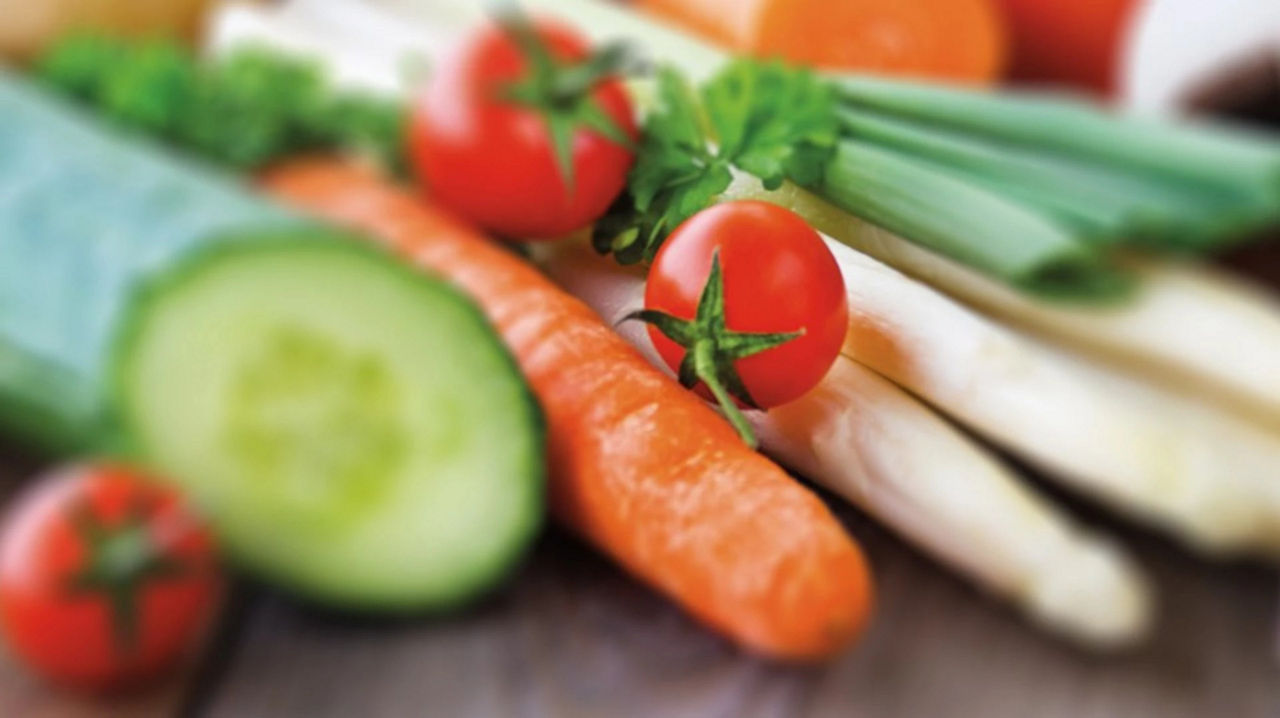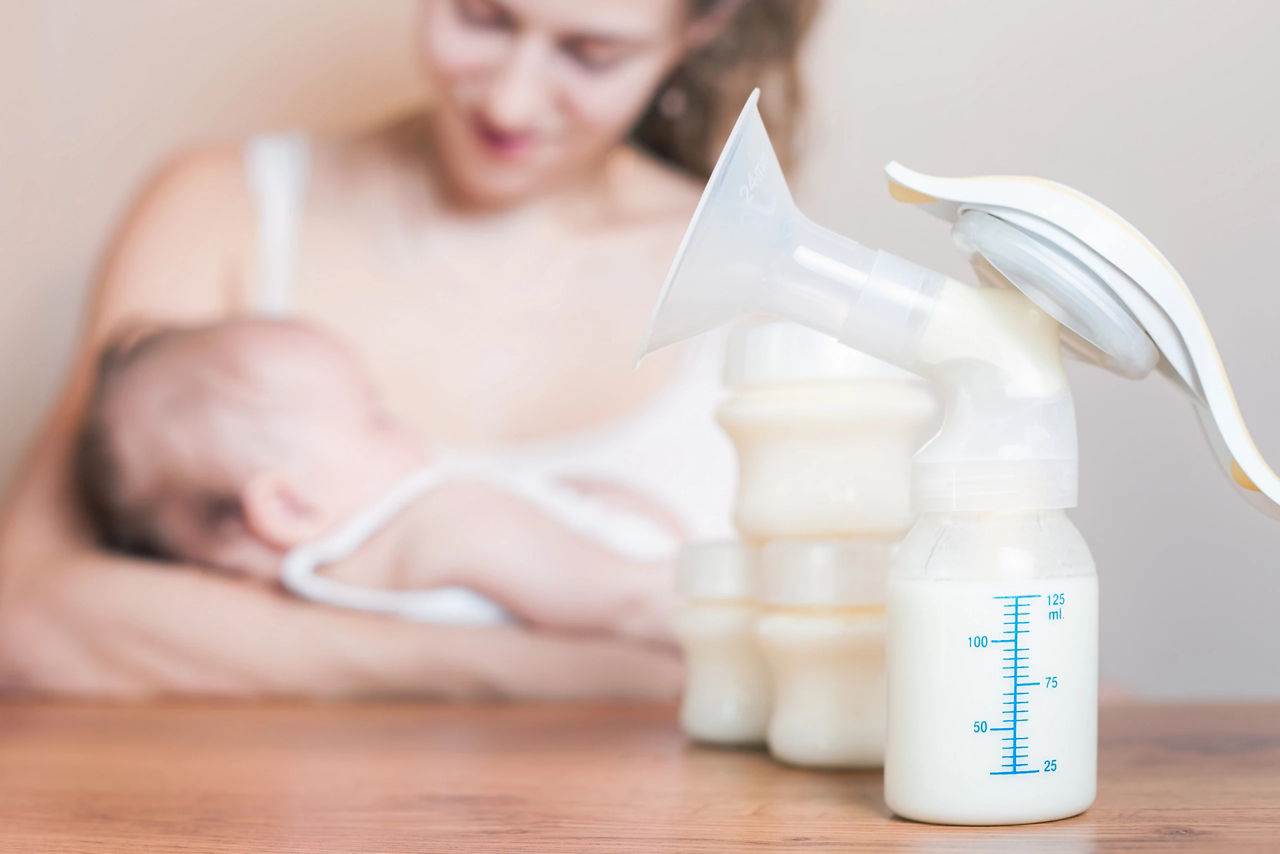At 3 months old, your baby is continually learning and is becoming increasingly aware of their surroundings and the world around them1. This is an important and exciting time for your baby’s development, both physically and mentally, and you’re likely to notice big changes in how they move, play and communicate.
Your baby’s development at 3 month old
Your baby at 3 months - making moves, starting to shine, continuing to grow
There are now more things you can do with your baby at 3 months that will keep them stimulated and curious as their personality starts to shine through2. This is the perfect time for you to really get to know your baby as you spend time together and see their emerging character start to develop and learn how you can support them as they continue to grow and develop important new skills.
Here we’ll look at some of the key developmental milestones for your baby at 3 months, naps and their bedtime routine, and your baby’s developing senses.
At a glance
Below you’ll find our guide to your baby at 3 months, as we guide you through your baby’s development and what to expect. From lifting their head and reaching for objects, to recognising familiar faces and smiling when they’re happy, there’s a lot going on in terms of those all-important developmental milestones. You may even start to notice a more regular pattern when it comes to your baby’s bedtime routine as they start to sleep for longer stretches.
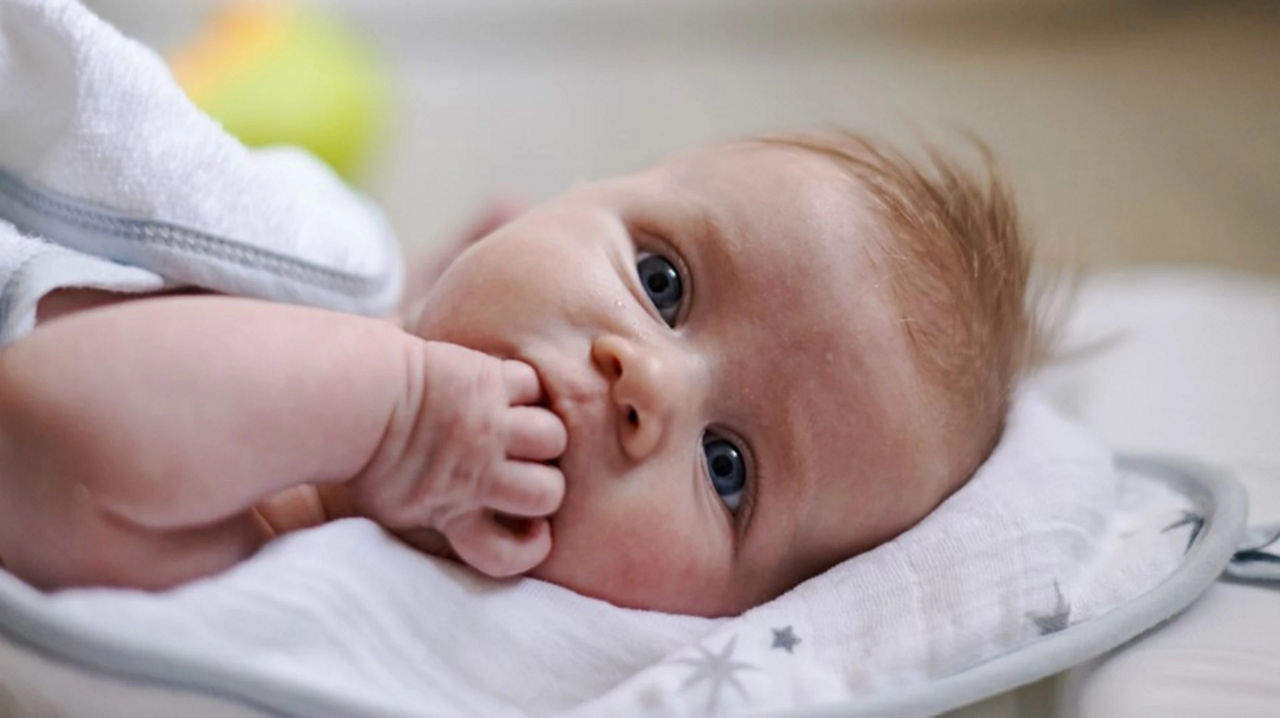
3-month developmental milestones
Some babies have a 'developmental leap' at around 3-4 months and you're likely to notice big changes in both their personality and skills1. There’s no doubt that this is an exciting time when it comes to your baby’s development.
You may notice that your baby is starting to lift their head when they’re on their tummy3. As their grip becomes stronger, they may use their hands to interact with their environment and hold toys for a short amount of time - they may also be more aware of their body and begin to play with their hands and fingers2.
One of the loveliest signs of your baby’s development at 3 months old is that they may have started to smile, laugh and make cooing noises. You may notice that your baby becomes more excited when they’re near you or when they see you2.
Physical development at 3 months old
Your baby at 3 months old is quickly growing in size and strength and becoming more skilled at big and small movements (known as fine and gross motor skills). Soon you’ll notice that your baby can support their own head – particularly when laid on their tummy – as their neck muscles continue to strengthen3 .
At 3 months, your baby will have started to explore their surrounding environment with their hands, so be sure to keep anything that’s unsuitable for them to play with well out of reach. You’ll start to see your baby open and close their fists as they reach out for objects3.
There are lots of things you can do with your 3-month-old to support their physical developmental milestones. Why not try3:
- Laying your baby on their tummy and their back - this will help them to get used to different positions.
- Have regular tummy time - play with your baby on the floor, as this will encourage them to learn about movement and develop the skills they’ll need to roll over, sit and crawl.
- Give your baby the opportunity to practise sitting - make sure that you’re supporting them as they do.
- Try giving your baby toys that are easy for them to play with, for example rattles and comforters that have different sounds and textures. This will encourage your baby to practise reaching and grasping as they learn to interact with the world around them.
Remember to always supervise your baby as they play, and to always lay them on their back when you put them down to go to sleep3.
Stronger muscles make grabbing things much easier.
Your baby’s developing senses
At 3 months old, your baby will be using their increasingly effective senses to learn about the world around them. Their vision is getting better as their eyesight gradually develops in the first few months of life4, and you’ll see that they’re starting to follow moving objects with their eyes5.
In addition to their vision, your baby’s hearing is developing too. From very soon after birth, your baby is capable of being startled by loud noises. They’ll let you know that this is the case by blinking or opening their eye wide. They may even start to cry7. At 3 months old, it’s likely that your baby will also be aware of longer sounds, for example they may take a pause in their play to listen to the sound of the vacuum cleaner7.
To encourage your baby’s developing senses, try3:
- Slowly moving objects in front of your baby’s face (from around 40 cm away) and see how they track them with their eyes.
- Give your baby objects that will now capture their attention, including colourful baby mobiles and rattles.
- Talk to your baby regularly so that they can hear your voice.
If you notice that your baby isn’t following objects or responding to sound as you might expect them to do, have a chat with your healthcare provider. That way they’ll be able to check your baby’s development to ensure that they’re meeting all of their developmental milestones.
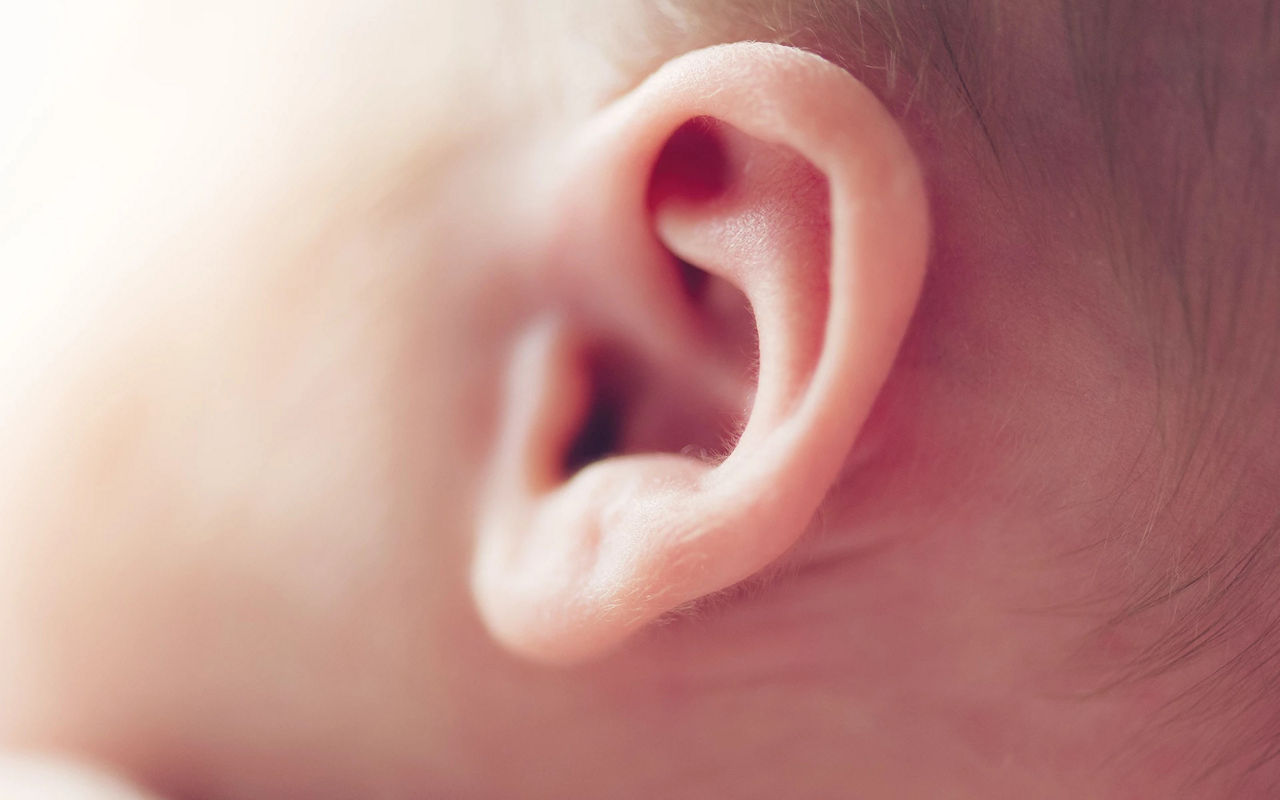 Their developing hearing may mean loud noises startle them
Their developing hearing may mean loud noises startle them
Their body will have completely uncurled, leaving their spine long and straight.
Communication skills at 3 months old
Up to now, crying has been your baby’s main method of communicating their needs, but from 3 months old your baby will learn new ways to communicate with you and others around them. If you haven’t already, you’ll soon notice your baby smiling and laughing when they’re happy, making cooing noises like ‘ooh’ and ‘aah’, and turning their head towards you and others to look at you when you talk8.
At this point in your baby’s development, you may find that they enjoy spending time with other babies as this helps them to learn and recognise social cues1. You can always speak to your healthcare provider about what parent and baby groups are available in your area if this is something you’re interested in.
At 3 months, you can start building the foundations of speech with your baby, by taking it in turns to make sounds and smile at each other. Talking to your baby regularly, for example telling them what you’re doing around the house, will also help your baby’s development in terms of their verbal skills1.
Other things that will encourage your baby’s development and introduce them to two-way conversations include9:
- Talking to your baby in a sing-song voice. This will help to keep their attention and help them get used to the natural ups and downs of speech.
- Singing to your baby - this can help them to become familiar with the rhythm of language.
- Repeating the sounds your baby makes back to them.
Feeding their development
It’s important that your baby gets all the nutrients they need for their rapid growth and development. The best way to ensure your baby gets enough milk is to respond to their hunger cues and follow their lead. If their appetite suddenly increases, it doesn’t necessarily mean they’re ready to start weaning; they may just be going through a growth spurt1.
For the first six months of life, breast milk or first infant formula will provide the energy and nutrients that your baby needs for their growth and development10. There are a number of benefits to breastfeeding, and the NHS recommends that breast milk is the sole source of nutrition for the first six months of life, and then as a continuing source of nutrition with a mixed diet up to two years of age and beyond11.
You’re advised to wait until your baby is around at least 6 months old before they start their weaning adventure. This is because the digestive system at 3 months of age is not yet mature enough for solid food – even purées, and by 6 monthsbut at a later stage they’ll be more adept at chewing and swallowing10.
The best way to tell if your baby is getting enough milk is to listen to them - your baby won’t waste any time in telling you that they’re hungry. Whether you are breast or bottle feeding, always follow your baby’s hunger cues, feeding them on demand rather than in line with a set feeding schedule. For advice on whether your baby is getting enough breast milk, read our article ‘How to breastfeed’. You’ll also find more information on bottle feeding here.
Every baby is different. There is no set amount of milk you should be feeding.
Sleep schedule for 3-month-olds
From 3-6 months old, your baby’s sleep schedule might start to change. They may start to sleep for longer stretches throughout the night without waking as often for feeds12. Some 3-month-olds sleep for 8 hours or more during the night, but not all will go this long straight away12. Your 3-month-old will still need regular naps throughout the day and could sleep anywhere between 8 and 17 hours in a 24-hour period13.
At 3 months, your baby might be ready for you to introduce a bedtime routine. If this is something you decide to do, you might want to try12:
- A warm bath followed by a fresh nappy and night clothes.
- Creating a calm atmosphere by dimming the lights and giving goodnight kisses and cuddles.
- Putting them to bed to avoid too much stimulation that might be going around the house.
- Singing to your baby or putting on a musical mobile whilst they’re in bed.
When trying to establish a sleep schedule or bedtime routine, it can help for your baby to learn the difference between day and night, as this will enable them to regulate their developing body clock. Try keeping the room they’re in dark at night and allow light in during the day. Don’t worry about keeping your baby’s surrounding quiet during the day, even when they’re taking their naps12.
The most important thing to remember is that every baby’s sleep schedule is different, so try not to compare your baby’s sleep schedule with others. It’s normal for the amount of sleep they need to fluctuate, and their sleep schedule is unlikely to fit in with your own this early on. Remember also that it’s perfectly normal for your baby not to sleep through the night, and the NHS advises that your baby sleeps in the same room as you until they are 6 months old so that you can easily respond to their needs13.
Ways to stimulate your baby’s mind and body
Playing with your baby will become even more rewarding at 3 months old as they start to purposefully respond to your face, voice and actions. Time play sessions and trips out and about for when they’re well-fed, wide awake and alert so that they can focus on enjoying their time playing and learning with you.
As your baby is now using their hands more to deliberately interact with their environment, you can encourage them to reach out and practise grasping. Place items like toys and baby mobiles just out of reach, encouraging your baby to move towards them. These activities can support your 3-month-old’s muscle development and hand-eye coordination14.
Talk, sing and read to your baby often, incorporating games such as ‘peek-a-boo’ and songs with actions such as ‘wind the bobbin up’. Exposing your developing 3-month-old to a variety of speech sounds will help them to recognise patterns, building the important foundations of communication15.
As your bright and alert 3-month-old’s personality develops, you may notice that they prefer some activities and toys more than others. Pay attention to their preferences and respond to their interests, providing opportunities to learn and play in ways that you both enjoy14.
Signs of developmental problems at 3 months
Developmental milestones are used as a rough measure to assess how a baby is progressing in line with what is expected at different ages. By 3 months, you can expect your baby to have reached certain developmental milestones, such as being able to hold their head up a little, briefly touching their hands together, smiling and making cooing sounds16.
However, when it comes to what a 3-month-old should be doing, keep in mind that every baby’s developmental journey is different, and a delay in reaching these milestones is not necessarily a cause for concern.
related articles
Learn more about your baby

Need some help?
You can get quick answers to common questions in our FAQs.
Alternatively, if you need help with general pregnancy or baby advice, or maybe on using or ordering our products - our expert team are always on hand to talk about feeding your baby.
- NHS Cambridgeshire Community Services. Three month baby check and parent/carer mental health review [online]. Available at https://www.cambscommunityservices.nhs.uk/docs/default-source/beds---health-visiting/3-month-review---professionals-leaflet.pdf?sfvrsn=6#:~:text=Many%20babies%20have%20a%20developmental,will%20encourage%20optimal%20brain%20development [Accessed February 2024]
- NHS Children & Young People’s Services Norfolk. 3-4 Month Check [online] Available at https://www.justonenorfolk.nhs.uk/our-services/3-4-month-check/ [Accessed February 2024]
- NHS Buckinghamshire Healthcare. A Guide to Development: From Birth to 18 Months [online]. Available at https://www.buckshealthcare.nhs.uk/cyp/wp-content/uploads/sites/6/2021/08/Development-guide-from-birth-to-18-months.pdf [Accessed February 2024]
- NHS. Your newborn baby [online] 2024. Available at https://www.nhs.uk/pregnancy/labour-and-birth/after-the-birth/getting-to-know-your-newborn/#:~:text=Eyes%20in%20newborns&text=Their%20eyesight%20develops%20gradually%20over,away%20from%20each%20other%20occasionally. [Accessed February 2024]
- American Optometric Association. Infant Vision: Birth to 24 Months of Age [online]. Available at https://www.aoa.org/healthy-eyes/eye-health-for-life/infant-vision?sso=y [Accessed February 2024]
- Barrera, M. E. & Maurer, D. (1981). Recognition of Mother’s Photographed Face by the Three-Month-Old Infant, Child Development, 52(2), 714-716. Available at https://www.jstor.org/stable/1129196 [Accessed February 2024]
- NHS University Hospitals Bristol. Reacting to sounds in the first year [online]. Available at https://www.uhbristol.nhs.uk/media/3649670/reacting_to_sounds_checklist_jul18draft.pdf. [Accessed February 2024]
- NHS Lothian. Birth to 18 Months [online]. Available at https://www.lets-talk.scot.nhs.uk/tips-and-info/typical-development/birth-to-18-months/ [Accessed February 2024]
- NHS. Help your baby learn to talk [online]. Available at https://www.nhs.uk/conditions/baby/babys-development/play-and-learning/help-your-baby-learn-to-talk/#:~:text=0%20to%206%20months&text=Sing%20to%20your%20baby%20%E2%80%93%20this,to%20keep%20your%20baby's%20attention. [Accessed February 2024]
- NHS. Your baby's first solid foods [online] 2022. Available at https://www.nhs.uk/conditions/baby/weaning-and-feeding/babys-first-solid-foods/. [Accessed February 2024]
- NHS. Benefits of breastfeeding [online]. Available at https://www.nhs.uk/conditions/baby/breastfeeding-and-bottle-feeding/breastfeeding/benefits/#:~:text=Giving%20nothing%20but%20breast%20milk,them%20grow%20and%20develop%20healthily. [Accessed February 2024]
- NHS. Helping your baby to sleep [online]. Available at https://www.nhs.uk/conditions/baby/caring-for-a-newborn/helping-your-baby-to-sleep/#:~:text=Sleep%20requirements%20at%203%20to,they%20do%20during%20the%20day. [Accessed February 2024]
- NHS Wirral Community Health and Care. Your baby’s sleep at… 3-6 months old [online]. Available at https://www.wchc.nhs.uk/wp-content/uploads/2019/12/SaferSleep_3-6months.pdf. [Accessed February 2024]
- NHS Leicestershire Partnership. Move and play: Birth – 9 months [online]. Available at https://www.leicspart.nhs.uk/wp-content/uploads/2019/02/Move-and-play-ALL.pdf [Accessed February 2024]
- NHS Bradford District Care. Spending time with your baby [online]. Available at https://www.bdct.nhs.uk/wp-content/uploads/2021/09/Spending-time-with-your-baby-Leaflet.pdf [Accessed February 2024]
- NHS Lincolnshire Community Health Services. Birth to 3 months [online]. Available at https://www.lincolnshirechildrenstherapyservices.nhs.uk/what-typical-development/0-2-years/0-3-months [Accessed February 2024]
- NHS The Newcastle upon Tyne Hospitals. 3-4 month visit [online]. Available at https://www.newcastle-hospitals.nhs.uk/services/0-19-service/health-visiting-0-5-years/3-4-month-visit/ [Accessed February 2024]
Last reviewed: 13th August 2014
Reviewed by Nutricia’s Medical and Scientific Affairs Team

